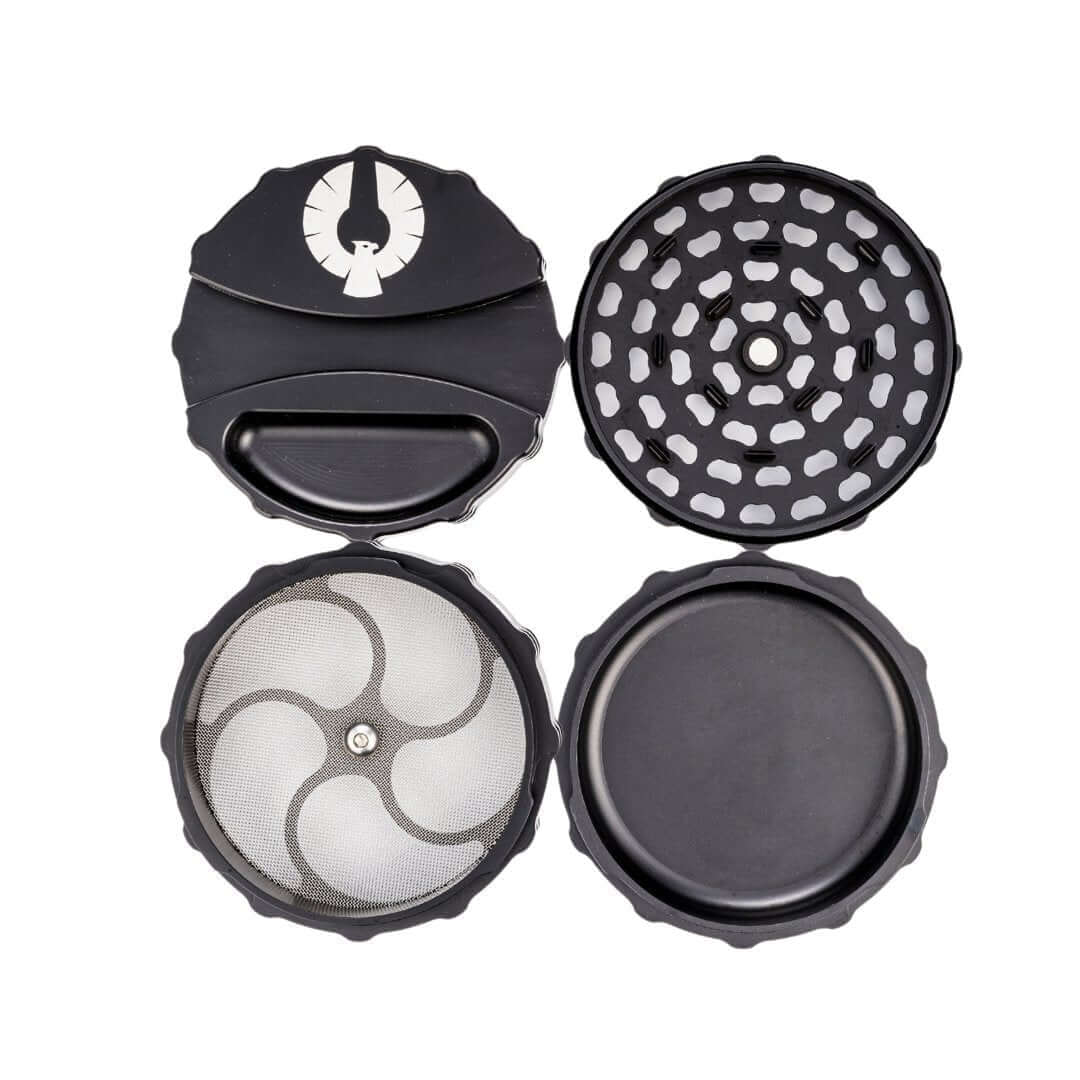Your Cart is Empty
FREE Shipping Over $100
FREE Shipping Over $100
Shop Herb Grinders
Cannabis and Mental Health: Debunking Myths and Exploring Benefits
May 04, 2025 4 min read
The connection between cannabis and mental health is fascinating but often misunderstood. As cannabis becomes more accepted and legalized, its impact on mental health has become a hot topic. In this blog, we’ll dive into the latest research on how cannabis may help with anxiety, depression, and PTSD. We’ll also clear up some common myths and share why taking breaks from cannabis can be so important.
How Cannabis Affects Mental Health
Cannabis is packed with compounds like THC (tetrahydrocannabinol) and CBD (cannabidiol). These interact with your body’s endocannabinoid system—a network that helps regulate mood, stress, and more. Understanding how these compounds work is key to understanding cannabis’s impact on mental health.
Finding the Balance Between THC and CBD
THC is the part of cannabis that gets you high. It can make you feel euphoric, but for some people, especially in higher doses, it can cause acute anxiety or paranoia. CBD, on the other hand, won’t get you high and is thought to have calming effects. Research suggests that CBD might even balance out some of the negative effects of THC. So, the ratio of THC to CBD matters when it comes to how cannabis affects your mental health.
The Potential Benefits of Cannabis for Mental Health
Cannabis isn’t a magic cure, but there’s promising research showing it could help with certain mental health conditions. Let’s take a closer look at anxiety, depression, and PTSD.
Cannabis for Anxiety
If you’ve ever felt like anxiety was taking over, you’re not alone. Millions of people struggle with it, and some turn to cannabis for relief. Studies show that low doses of THC might reduce anxiety, while higher doses can make it worse. CBD, however, stands out for its potential to ease anxiety without the risk of feeling “too high.” In a 2019 study fromThe Permanente Journal, participants reported feeling less anxious after using CBD. This could be a game-changer for those looking for alternatives to traditional anxiety meds.
Cannabis for Depression
When it comes to depression, the relationship with cannabis is a bit complicated. Some people find that it lifts their mood and helps them feel more relaxed. But the evidence is honestly mixed at this point. Short-term usage might boost your mood, but heavy or long-term use has been linked to worsening depression in some cases. Moderation is the key here, and it’s important to figure out what works best for you.
Cannabis for PTSD
For people living with PTSD, cannabis has been a lifeline. Veterans and others with PTSD often report that it helps with symptoms like nightmares and emotional distress. A 2021 study published inFrontiers in Psychiatry found that cannabis significantly reduced PTSD symptoms. Researchers believe cannabinoids can help regulate fear responses and improve emotional resilience, giving people with PTSD a better chance at finding peace.
Separating Fact from Fiction in Cannabis and Mental Health
Despite its growing popularity, cannabis is still surrounded by misconceptions. Let’s tackle a few of the most common ones.
Myth #1: Cannabis Is Always Good for Mental Health
While cannabis can be helpful, it’s not a one-size-fits-all solution. How it affects you depends on things like dosage, strain, and your own brain chemistry. For instance, people with a history of psychosis or schizophrenia should be cautious, as cannabis could increase their risk of psychotic episodes.
Myth #2: All Cannabis Is the Same
Not all cannabis is created equal. Different strains have different levels of THC, CBD, and terpenes (compounds that affect smell and taste). These differences can dramatically change how a strain makes you feel. For example, some strains are calming, while others are more energizing. Knowing the strain you’re using can help you get the experience you’re looking for.
Myth #3: Cannabis Is Highly Addictive
Cannabis can be habit-forming, but it’s not as addictive as alcohol or opioids. Around 9% of users may develop cannabis use disorder (CUD), and the risk is higher for people who start young or use a lot of high-THC products. The good news is that recognizing the signs of overuse and taking breaks can help you avoid this.
Why Taking a Break Matters
If you use cannabis regularly, you might notice it doesn’t work as well over time. This is because your body builds a tolerance, meaning you need more to feel the same effects. Taking “tolerance breaks” or “T-breaks” gives your body a chance to reset.
Even a short break of just a couple of days can make a big difference. It’s also a good time to check in with yourself and make sure cannabis is still benefiting your mental health. Think of it as a reset button for your mind and body.
How to Use Cannabis for Mental Health Responsibly
If you’re thinking about using cannabis to support your mental health, it’s important to approach it thoughtfully. Here are a few tips:
- Talk to Your Doctor If you’re taking other medications or have a mental health condition, let your healthcare provider know. They can help you decide if cannabis is right for you.
- Start Small Begin with a low dose, especially if you’re new to cannabis or trying a product for the first time. Gradually increase it if needed.
- Pick the Right Product Look for products with a balance of THC and CBD, or opt for CBD-dominant options if you’re worried about getting high.
- Pay Attention to Timing Use cannabis when you have time to relax and won’t need to focus on important tasks. This helps you avoid unnecessary stress.
- Stay Informed Keep up with research and trends so you can make informed choices. Reliable sources and studies are your best friends.
Clearing the Haze Around Cannabis
The relationship between cannabis and mental health is multifaceted but full of potential. It’s not a cure-all, but for some people, it can be a valuable tool in managing anxiety, depression, or PTSD. Understanding how cannabis works, debunking myths, and using it responsibly are key to making it a positive part of your life.
By staying open-minded and mindful, you can explore how cannabis fits into your mental health journey. And remember, taking breaks and checking in with yourself can help you get the most out of it. After all, your mental well-being comes first.
Also in The Grind

Understanding Cannabis Terpenes: Enhancing Your Experience
November 02, 2025 5 min read
Terpenes play a crucial role in the flavor and effects of cannabis, yet they’re often overlooked. This article breaks down what terpenes are, how they work with cannabinoids, and how to use them to tailor your cannabis experience. Discover the science behind the smells and effects of your favorite strains.

The Endocannabinoid System: How Cannabis Interacts with Our Bodies
October 19, 2025 2 min read
Continue Reading
The Ultimate Grinder Guide: How to Choose the Right Grinder for You
October 10, 2025 3 min read
Continue Reading








